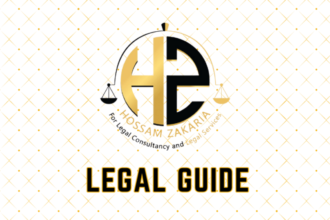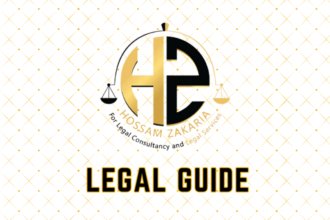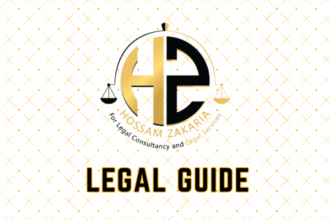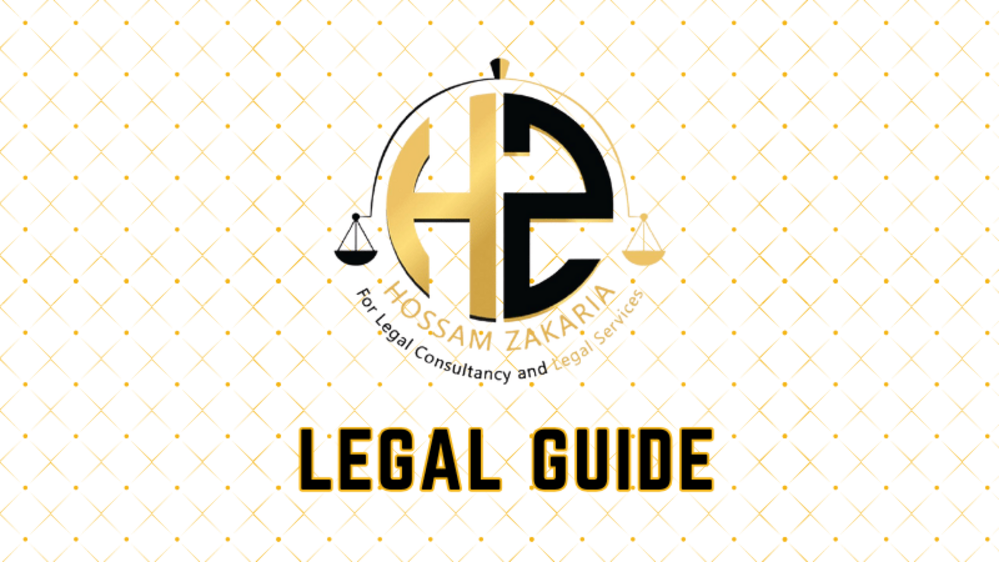Introduction
The aviation sector in the United Arab Emirates (UAE) has long stood as a cornerstone of the nation’s economic development and international standing. As the global and regional aviation markets rapidly evolve, regulatory frameworks governing airlines and air operators are becoming ever more significant. In this context, the regulatory oversight provided by the General Civil Aviation Authority (QCAA—the colloquial abbreviation often used for the UAE’s General Civil Aviation Authority, GCAA) is essential to ensure compliance, safety, operational integrity, and competitiveness.
This article provides an expert legal consultancy analysis of the QCAA’s regulatory role, reflecting the latest UAE law 2025 updates, and examines the practical implications for airlines, their leadership, compliance teams, and stakeholders. Readers—including airlines, legal practitioners, HR managers, and executives—will gain a comprehensive understanding of both the legal requirements and strategic best practices to thrive in this highly regulated sector.
Against a backdrop of recent federal decree amendments and ministerial guidelines, understanding the nuanced regulatory ecosystem is vital. Non-compliance brings significant risks—including fines, reputational loss, and operational suspension—that must be proactively managed. This guide unpacks the legislative framework, key recent changes, and practical approaches to achieving and maintaining compliance under UAE law.
Table of Contents
- Regulatory and Legal Framework Governing Airline Operations in UAE
- Mandate and Authority of QCAA (GCAA) in the UAE
- Key UAE Law 2025 Updates and Recent Decrees Impacting Airlines
- Regulatory Process: Certification, Oversight, and Enforcement
- Compliance Obligations and Strategic Considerations for Airlines
- Case Studies and Hypotheticals: QCAA Oversight in Practice
- Risks of Non-Compliance & Penalties Under Federal Decree UAE
- Strategic Compliance: Best Practices for UAE Airline Operators
- Future Trends and Recommendations for Proactive Compliance
- Conclusion and Forward-Looking Perspective
Regulatory and Legal Framework Governing Airline Operations in UAE
Federal Foundations
The governing legal structure for civil aviation in the UAE is established primarily through:
- Federal Law No. 20 of 1991 on Civil Aviation (amended by Federal Law No. 4 of 2023)
- Associated executive regulations, Cabinet Resolutions, and Ministerial Circulars issued by the General Civil Aviation Authority (GCAA)
This framework is further complemented by regional and international obligations under the International Civil Aviation Organization (ICAO) Chicago Convention 1944 and multiple bilateral air service agreements.
Scope and Structure
The legal regime regulates all facets of airline operations, including but not limited to:
- Air carrier and aircraft operator certification
- Safety and security obligations
- Air navigation services and oversight
- Airworthiness and technical standards
- Personnel licensing and crew requirements
- Environmental compliance
Mandate and Authority of QCAA (GCAA) in the UAE
Establishment and Statutory Powers
The General Civil Aviation Authority (GCAA), commonly abbreviated in some industry circles as QCAA by analogy with the Qatar authority, was created under Federal Law No. 4 of 1996. The GCAA holds sovereign powers to regulate, supervise, and enforce all aspects of civil aviation in the UAE. Its core mandates include:
- Certification and licensing of air operators
- Airport and airspace regulation
- Safety and compliance surveillance
- Investigating incidents and accidents
- Setting and updating regulatory standards
The QCAA/GCAA issues binding regulations published through Cabinet Resolutions and Ministerial Decisions, all of which are regularly updated in the UAE Federal Legal Gazette.
Key Regulatory Instruments
- Civil Aviation Regulations (CARs): Detailed operating requirements for airworthiness, flight operations, aircrew, training, and security.
- Advisory Circulars and Guidance: Supplementary regulatory advice for implementation.
Consultancy Insights
Organizations must recognize that QCAA/GCAA’s enforcement powers are comprehensive, covering direct intervention, audit and inspection, suspension, imposition of fines, and in serious cases, license revocation. Maintaining open communication and proactive compliance with GCAA updates is foundational for risk management and operational continuity.
Key UAE Law 2025 Updates and Recent Decrees Impacting Airlines
Recent Legislative and Regulatory Developments
Recent years have brought a wave of legislative upgrades in the UAE aviation sector, focused on aligning practice with international standards, promoting safety, and strengthening consumer and labour protection. Notable updates for 2025 include:
- Federal Decree-Law No. 4 of 2023 (Amending Federal Law No. 20 of 1991)
- Cabinet Resolution No. 15 of 2024 (Airline Consumer Protection)
- Ministerial Circular No. 9 of 2025 (Post-pandemic health and safety protocols)
- GCAA Safety Directives (2024–2025 editions)
Key Areas of Change
- Enhanced airline liability for passenger delays and cancellations
- Updated aircrew licensing and medical fitness requirements
- Digitalization of licensing and certification processes
- Stricter environmental standards in line with UAE’s Net Zero goals
Table: Old vs. New Regulatory Requirements (Sample)
| Regulatory Area | Prior to 2023 | 2024–2025 Update |
|---|---|---|
| Consumer Compensation | Limited to ICAO minimums | Mandatory UAE-specific compensation for delays & lost luggage |
| Medical Fitness Standards | Periodic medical checks, paper-based | Biometric and digital medical tracking, real-time updates |
| Environmental Compliance | General compliance emphasized | Strict carbon emission reporting and offsetting requirements |
| Certification Process | Manual submissions and reviews | Integrated digital platform—faster approvals, online audits |
Practical Example
An Emirati airline facing a surge in passenger claims for flight delays now must have, as of 2025, a dedicated compliance protocol aligned with Cabinet Resolution No. 15 of 2024, detailing consumer redressal procedures and mandatory compensation payment timelines.
Regulatory Process: Certification, Oversight, and Enforcement
Certification and Approval Process
- Air Operator Certificate (AOC) Application: Airlines must submit a comprehensive dossier to GCAA, including business plans, safety management systems, operational manuals, and financial solvency proof.
- Technical and Safety Reviews: GCAA conducts multi-stage audits—including document review, inspection of facilities, crew, and fleet.
- Operational Approval: Upon satisfactory completion, GCAA issues the AOC and associated permits.
Ongoing Oversight
- Regular Audits: Scheduled and unannounced inspections of airline operations, training procedures, and record-keeping.
- Incident Reporting: Immediate notification to GCAA of any accidents, safety breaches, or serious incidents.
- Continuous Monitoring: Digital surveillance, performance metrics, and feedback systems to ensure real-time compliance.
Enforcement
- Administrative Sanctions: Warnings, written directives for remedial action.
- Financial Penalties: Imposed under the latest Cabinet Resolutions—ranging from AED 20,000 to AED 500,000 for significant breaches.
- License Suspension or Revocation: For repeated or serious non-compliance, as provided under Federal Decree-Law No. 4 of 2023.
Legal Insight
GCAA’s enforcement stance has become increasingly stringent in the wake of international code-share partnerships and the pressures of competitive markets. Airlines must anticipate inspections and maintain robust records at all times—not merely in anticipation of scheduled audit dates.
Compliance Obligations and Strategic Considerations for Airlines
Core Compliance Obligations
- Safety Management Systems (SMS): Mandated under CAR PART X (latest amendment), including digital safety reporting tools.
- Flight Crew Licensing: Annual re-validation and adherence to stricter medical standards (Ministerial Circular No. 9 of 2025)
- Environmental Reporting: Quarterly carbon emissions disclosure as per new environmental frameworks.
- Passenger Rights Compliance: Swift resolution of consumer complaints; real-time updates to GCAA portal.
- Enhanced Data Protection: Application of UAE Data Protection Law in all passenger data handling (Cabinet Resolution No. 44 of 2023)
Strategic Considerations for Operators
- Continuous Legal Training: Ensure frontline teams and management are updated on evolving regulations.
- Integrated Digital Compliance Platforms: Utilize approved software to track obligations and submit evidence to GCAA digitally.
- Proactive Engagement: Regularly liaise with regulatory officials and industry consultative committees.
Compliance Checklist (Sample Visual Placement)
Suggestion: Insert a compliance checklist infographic here summarizing annual, quarterly, and ad hoc regulatory filings and obligations.
Case Studies and Hypotheticals: QCAA Oversight in Practice
Case Study 1: Suspension for Safety Protocol Violations
Facts: A UAE-based regional carrier failed to update its pilot re-training schedules as required under the newly amended GCAA CAR PART X.
Outcome: Following an unannounced audit, GCAA temporarily suspended the airline’s AOC, stating non-compliance with crew training standards. The carrier had to implement emergency corrective measures and undergo a re-audit before service resumption. This underscores the strict enforcement approach now prevalent under federal decree UAE air safety mandates.
Case Study 2: Digital Compliance Success
Facts: A major UAE airline adopted an integrated digital compliance management system (DCMS) in 2024, enabling real-time submission of regulatory evidence and prompt incident notifications.
Outcome: During a routine GCAA review, the airline’s instant access to digital logs and certificates led to a positive audit outcome, and the airline was later cited in official advisories as a benchmark of best practice.
Hypothetical Example: Passenger Rights Infringement
Scenario: Passengers on a delayed international flight request compensation. The airline had not updated its consumer compensation procedures in line with Cabinet Resolution No. 15 of 2024.
Legal Risk: GCAA requires immediate rectification. The airline faces a potential penalty of AED 100,000 and mandatory process overhaul, damaging reputation and customer trust.
Risks of Non-Compliance & Penalties Under Federal Decree UAE
Legal and Financial Consequences
- Hefty Financial Penalties: New regulations introduced penalty bands for various infractions, reaching up to AED 500,000 for egregious breaches.
- Operational Suspension: Disruptions due to AOC suspension or cargo ban, causing significant revenue loss and contractual exposure.
- Reputational Harm: Public listing of sanctions on GCAA website, damaging brand trust with consumers and partners.
- Legal Liability: Heightened risk of civil lawsuits from consumers under enhanced passenger rights rules.
Table: Penalty Comparison Chart
| Offence Category | Penalty Before 2023 | 2025 and After |
|---|---|---|
| Safety Lapses | AED 50,000 | AED 250,000–500,000 + suspension possible |
| Consumer Rights Breach | AED 20,000 | AED 100,000–300,000 |
| Data Breach | Warning letter | AED 100,000 + public disclosure obligation |
Consultancy Guidance
Risk mapping and regular internal compliance audits can identify gaps and reduce exposure. Establishing a clear escalation path for legal issues protects both reputation and operating licenses.
Strategic Compliance: Best Practices for UAE Airline Operators
Recommended Practices
- Embed Compliance into Corporate Culture: Leadership must prioritize compliance and allocate resources to internal audit and training functions.
- Leverage RegTech: Choose government-approved digital solutions for tracking regulatory updates and managing compliance documentation.
- Engage in Ongoing Dialogue: Participate in GCAA consultative forums, attend training sessions, and seek clarification on new guidelines.
- Appoint a Dedicated Compliance Officer: Assign professionals with robust understanding of both regulatory and operational contexts.
- Maintain Documentation: Keep records for at least 5 years, in both digital and hard copy forms where required.
Suggested Visuals: Insert a process flow diagram here illustrating the steps in implementing a digital compliance solution.
Consultancy Insight
Regularly updating operations manuals, engaging HR in crew licensing compliance, and aligning IT security architecture with the UAE Data Protection Law are now core to legally resilient airline management.
Future Trends and Recommendations for Proactive Compliance
Emerging Regulatory Focus Areas
- AI and Automation: New GCAA standards for automated systems and pilotless aircraft are under review.
- Cybersecurity: Anticipate forthcoming rules on airline digital systems resilience and incident response plans.
- Environmental Regulation: Stricter reporting and carbon offset rules in line with the UAE’s Green Economy Vision 2030.
Recommendations
- Monitor regular updates from the UAE Federal Legal Gazette.
- Implement agile compliance systems adaptable to regulatory change.
- Strengthen internal cross-departmental communication (Legal, HR, Operations, IT).
- Invest in staff training—especially in digital compliance and environmental stewardship.
Conclusion and Forward-Looking Perspective
The regulatory oversight exercised by QCAA (GCAA) is a defining factor in shaping the standards, safety, competitiveness, and global reputation of UAE airline operations. With the advent of recent federal decrees and ministerial resolutions, compliance is no longer a static obligation but a dynamic strategic imperative. The legal landscape—particularly in light of 2025 updates—is more rigorous, technologically advanced, and consumer focused.
For all stakeholders, proactive engagement with GCAA, a culture of compliance, and strategic utilization of digital tools are critical. As the national and international aviation landscape continues to evolve, UAE airlines who lead in compliance will be best positioned for sustainable success. Legal practitioners and corporate leaders must remain vigilant, agile, and invested in ongoing education to navigate the latest regulatory complexities. This is not only essential for legal compliance, but also for the long-term resilience and competitiveness of airline businesses in the UAE.



